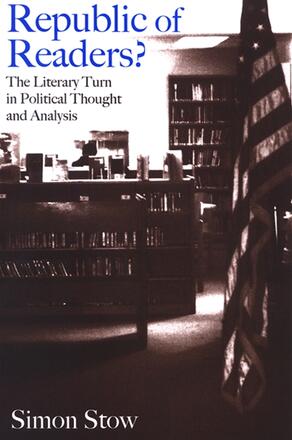
Republic of Readers?
The Literary Turn in Political Thought and Analysis
Alternative formats available from:
Defends political philosophy and social science against the rival claims of literature and literary criticism.
Description
2007 CHOICE Outstanding Academic Title
What is the proper role for literature in political thought and analysis? Can reading novels make us better citizens of a liberal democratic society? What is the status of argument and reason in an academy dominated by readings and redescriptions? Simon Stow identifies a potentially detrimental literary turn in the contemporary academy, arguing that the study of literature and the study of politics have become somewhat indistinguishable enterprises. Drawing on the work of Judith Butler, Terry Eagleton, Martha Nussbaum, and Richard Rorty, he examines the problematic claims, circular reasoning, and misplaced assumptions that underpin this disciplinary merging, and seeks to defend political philosophy and social science against the rival claims of literature and literary criticism as sources of political insight and construction.
Simon Stow is Assistant Professor of Government at the College of William and Mary.
Reviews
"Stow … meticulously analyses the main claims of the authors and thereby provides us with a valuable companion to their works … Stow's criticism of the four scholars is hard to refute and allows one to hope for a response by those who are attacked." — Political Studies Review
"Stow tackles a central issue and addresses it in a convincing and original way. He covers a wide range of materials and yet cuts through the thicket with keen arguments and key distinctions. The politics of the literary turn is a hugely important topic, and part of the significance of this work is that it groups together many of the most important 'postfoundational' theorists as belonging to that movement." — John E. Seery, author of America Goes to College: Political Theory for the Liberal Arts
"Riveting and provocative, this book will interest political theorists, literary critics, and public intellectuals alike." — Cyrus Ernesto Zirakzadeh, author of Social Movements in Politics: A Comparative Study, Expanded Edition